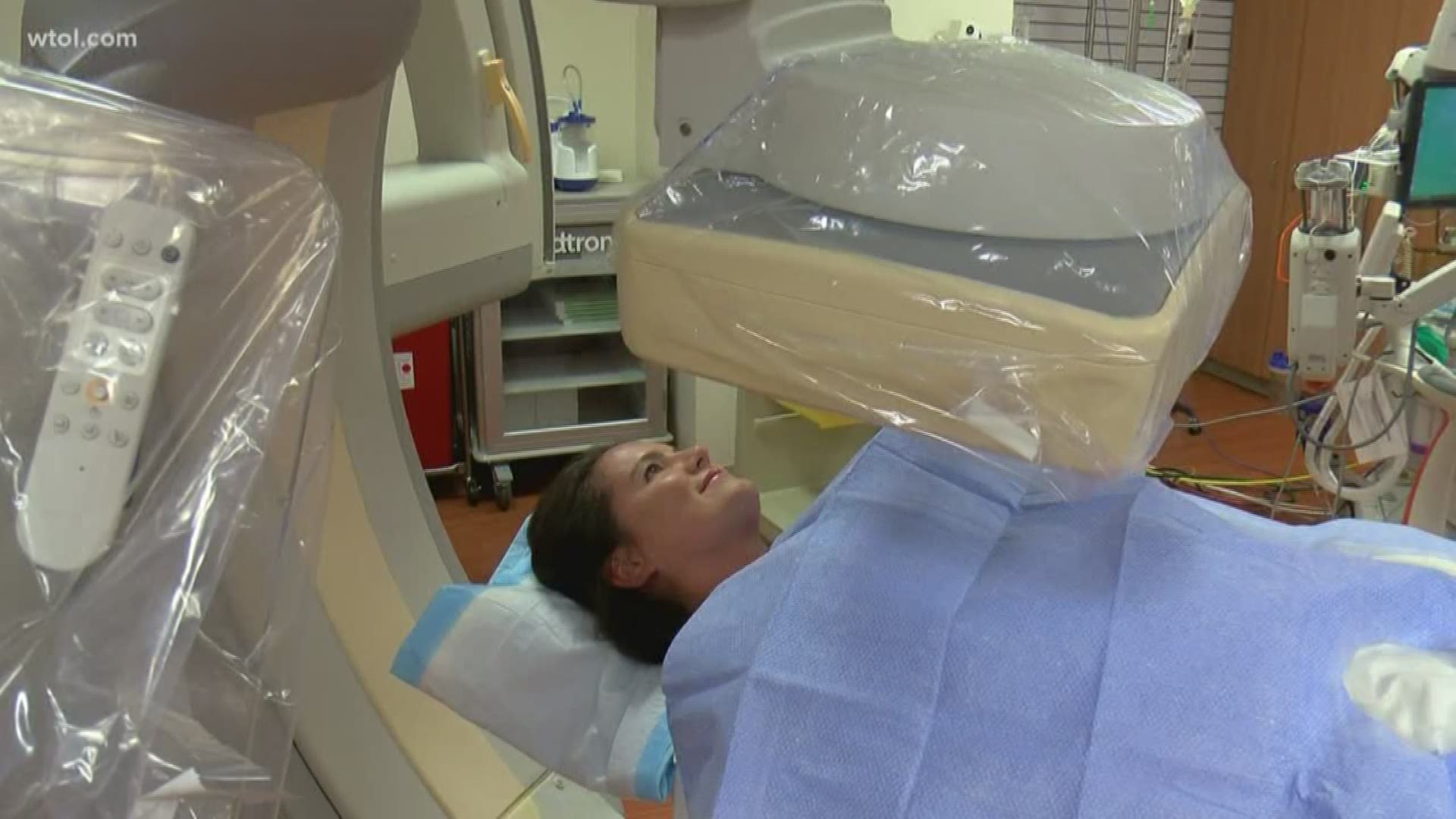TOLEDO, Ohio — February is Heart Month, a time to raise awareness about heart disease. It's the No. 1 killer in America and touches many lives right here in northwest Ohio.
"I was visiting my mom and I took her dog and my dog for a walk, and about halfway down the block, I started having pains. It was like someone was shoving their fist through my right shoulder blade and I thought, 'Am I having a heart attack?'" Denise Zygiel was having a heart attack.
At first, she says she tried to rationalize the symptoms. The pain was on her right side - not her left - and she didn't feel any jaw pain or other traditional heart attack symptoms.
"My father died at 47 of a heart attack. Unlike him, I didn't drink, didn't smoke. I was walking every day, but I was overweight and diabetic. I had a strong family history of heart disease, so I knew I was at risk," Zygiel said.
Her pain subsided for a short time, so Denise put off getting treatment. Finally, she could no longer ignore what she was feeling and she drove to the ER.
"He said if I didn't come when I did, I would have never been brought to the ER. I would have been found dead," Zygiel recalled.
According to the CDC, Nearly 650 thousand people die of heart disease in the U.S. every year. That's one death every 37 seconds.
Dr. Rajendra Kattar is a cardiologist with ProMedica. He's part of a program at Toledo Hospital that staffs a heart doc, 24-7 as time is always of the essence.
"Lots of places have 24-hour coverage, but that means the cardiologist is off site. The difference for us is we're right there," Kattar said.
Kattar says for one-third of people, a heart attack is their first sign of heart disease. That means two-thirds may get an early warning sign.
"The first sign that something could be amiss is that when you're trying to do things, normal activities or it could be exercise, you start to get short of breath. You start to get chest ache," Kattar said.
Kattar said if you get treatment before a heart attack comes on, you can avoid permanent damage.
He also said there are some things you can do now to prevent heart disease.
"If you did 30 to 40 minutes of exercise a day, five times a week, there's a 30 percent reduction in stroke and heart attack. That's better than any medication that's out there," Kattar said.
Denise says she's made lifestyle changes and she feels good. She has a message for others:
"I'm here today to tell everybody don't wait for somebody to tell you what to do. You know what to do. Get help," she said.

